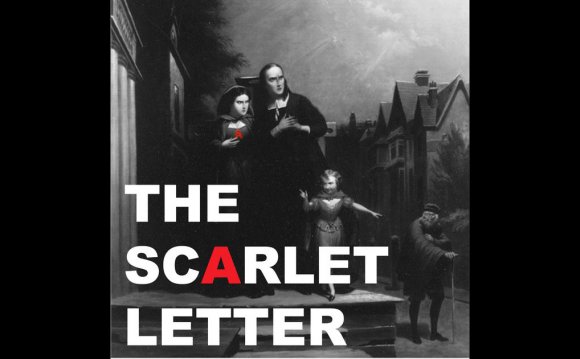| In her late singular interview with Mr. Dimmesdale, Hester Prynne was shocked at the condition to which she found the clergyman reduced. His nerve seemed absolutely destroyed. His moral force was abased into more than childish weakness. It grovelled helpless on the ground, even while his intellectual faculties retained their pristine strength, or had perhaps acquired a morbid energy, which disease only could have given them. With her knowledge of a train of circumstances hidden from all others, she could readily infer, that, besides the legitimate action of his own conscience, a terrible machinery had been brought to bear, and was still operating, on Mr. Dimmesdale’s well-being and repose. Knowing what this poor, fallen man had once been, her whole soul was moved by the shuddering terror with which he had appealed to her, —the outcast woman, —for support against his instinctively discovered enemy. She decided, moreover, that he had a right to her utmost aid. Little accustomed, in her long seclusion from society, to measure her ideas of right and wrong by any standard external to herself, Hester saw—or seemed to see—that there lay a responsibility upon her, in reference to the clergyman, which she owed to no other, nor to the whole world besides. The links that united her to the rest of human kind—links of flowers, or silk, or gold, or whatever the material—had all been broken. Here was the iron link of mutual crime, which neither he nor she could break. Like all other ties, it brought with it its obligations. |
Hester Prynne was shocked by how different the clergyman had seemed in her recent encounter with him. He had lost his nerve almost completely. His moral strength had been reduced to that of a child, begging and crawling around on the ground. At the same time, his mind was as strong as ever, perhaps even energized by the sickness of his soul. Hester, with the knowledge of certain secret circumstances, could easily guess what had happened to him. In addition to the deserved pain his own conscience caused him, a terrible machine had been set to work on Mr. Dimmesdale. That machine was destroying his well-being and good health. Knowing what this poor, diminished man had once been, Hester’s soul was moved by the desperate way he had begged her—her, the outcast!—for aid against the enemy he had instinctually discovered. She decided he had a right to her help. In her long isolation, Hester had come to measure right and wrong by her own standards, rather than those of the world. She saw that she had a responsibility to the minister that she did not have to anyone else. The links that bound her to the rest of humankind had been broken—whether they be links of flowers, silk, gold, or some other material. But her link to the minister was the iron link of a shared crime, and neither he nor she could break it. And like all other ties, it came with obligations. |
| Hester Prynne did not now occupy precisely the same position in which we beheld her during the earlier periods of her ignominy. Years had come, and gone. Pearl was now seven years old. Her mother, with the scarlet letter on her breast, glittering in its fantastic embroidery, had long been a familiar object to the townspeople. As is apt to be the case when a person stands out in any prominence before the community, and, at the same time, interferes neither with public nor individual interests and convenience, a species of general regard had ultimately grown up in reference to Hester Prynne. It is to the credit of human nature, that, except where its selfishness is brought into play, it loves more readily than it hates. Hatred, by a gradual and quiet process, will even be transformed to love, unless the change be impeded by a continually new irritation of the original feeling of hostility. In this matter of Hester Prynne, there was neither irritation nor irksomeness. She never battled with the public, but submitted uncomplainingly to its worst usage; she made no claim upon it, in requital for what she suffered; she did not weigh upon its sympathies. Then, also, the blameless purity of her life, during all these years in which she had been set apart to infamy, was reckoned largely in her favor. With nothing now to lose, in the sight of mankind, and with no hope, and seemingly no wish, of gaining any thing, it could only be a genuine regard for virtue that had brought back the poor wanderer to its paths. |
Hester Prynne was not in quite the same position as she had been in the earlier years of her shame. Years had passed. Pearl was now seven years old. Hester, with the scarlet letter glittering on her breast, had long been a familiar sight. The townspeople now thought of her with the sort of respect afforded prominent people who do not interfere with either public or private affairs. It is a credit to human nature that it is quicker to love than hate, unless its selfishness is provoked. Even hatred itself will gradually give way to love, unless that original hatred is continually irritated. But Hester Prynne didn’t irritate or irk anyone. She never fought against public opinion. Instead, she submitted without complaint to the worst it could offer. She did not claim that the public owed her any compensation for her suffering. She never begged for sympathy. And she was widely admired for the sinless purity of her life during the many years of her public shame. With nothing to lose in the eyes of the public—and nothing, it seemed, to gain either—it must have been a genuine desire for virtue that had altered her life’s path. |










